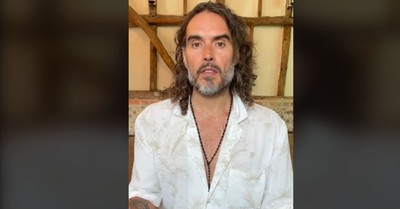Marriage: I Don't Want to Argue About It
- James Tonkowich ReligionToday.com Columnist
- Published Jul 17, 2013

There is no doubt about it. Those who believe that marriage should be between one man and one woman (conjugal marriage) have by far the best arguments.
There is, however, a problem: No one is listening — not even judges.
In the decision that struck down the federal Defense of Marriage Act (DOMA), Justice Anthony Kennedy, writing for the majority, stated that the only reason anyone could have for defending conjugal marriage is dislike, animus and, thus, the desire to harm homosexuals. And the carefully crafted arguments presented to defend marriage? Fuhgeddaboudit.
As Manhattan Declaration executive director Eric Teetsel writes, the book What Is Marriage?: Man and Woman: A Defense by Sherif Girgis, Ryan Anderson and Robert George is “a masterful defense of what marriage is and why it matters.”
He then asks, “What did the same-sex marriage movement do with this seminal book? They ignored it. They don’t have answers to the authors’ claims; they don’t need them. Advocates of same-sex marriage aren’t concerned about the logic of their arguments or the precedents they establish. Forget facts; theirs is a more powerful weapon in the era of amusement: fad.”
“A fad,” says one helpful definition, “is any form of behavior that develops among a large population and is collectively followed with enthusiasm for some period, generally as a result of the behavior's being perceived as novel in some way.” It adds, “Apart from general novelty, fads may be driven by mass media programming, emotional excitement, peer pressure, or the desire of 'being hip.'”
Fads, it should be added, bypass reason. We don’t play Angry Birds, solve Sudoku puzzles, pierce navels, or wear Che Guevara pajamas for some rational reason. And most people reason don’t support revising the definition of marriage to include same-sex couples for a rational reason. Most people most of the time act based on “mass media programming, emotional excitement, peer pressure, or the desire of 'being hip.'”
As with other issues, there are true believers on both ends of the bell curve — pro and con — who, for the most part, won’t change. Between the two extremes lie the vast majority of Americans who are only vaguely committed to either side of the debate though, as polls have shown, are tipping toward marriage revisionism.
Why? According to Nathan Hitchens in You’ve Been Framed: A New Primer for the Marriage Debate, “Better arguments from natural law, while necessary and helpful, are unlikely to turn the tide of opinion because many people are not convinced rationally in the first place: television, songs, friends, and their own experiences shape their understanding of love and marriage. In short, we are shaped by unconscious influences, social and personal narratives, and emotion.”
Gay friends or family members, Ellen Degeneres, Elton John, Glee, and stories in the news touch our emotions and provide a narrative, story, language and memes. Reason on its own can’t compete. To change minds we need better stories, more gripping narratives, more compelling language, and “stickier” memes that, over time, pull emotions in line with reason.
That won’t be easy particularly this late in the debate. But here are some action steps.
(1) We need to tell the story of the goodness and beauty of marriage and family life. That may first involve some work if your marriage and family are less than good and beautiful. But it’s the first necessary step in order to…
(2) Build a culture of marriage and family in the Church. Let’s be brutally honest, we’re either going to be salt and light in our culture or we can expect God’s judgment because we’re good for nothing (see Matthew 5:13b). Pastors, lay leaders, teachers, youth ministers, every mom and dad, and every single adult needs to get onboard to work and pray.
(3) Show, then tell. Artists, musicians, writers, and filmmakers are vital. Think of Uncle Tom’s Cabin and the anti-slavery movement or the film “Guess Who’s Coming to Dinner” and civil rights. We need to creatively tell the story of marriage and family in ways that reach emotions and replace the prevailing narrative so that hearts will change minds.
(4) Retool our message. For those of us who work in one way or another in public policy, rational arguments, studies, data, and white papers are the tools of choice. We need to go beyond those tools and Nathan Hitchens' work is a good place to start.
The challenge to marriage isn’t arguments. The challenge is the way our neighbors see the world and their place in it. To change that, we need creativity, all hands on deck, and God’s grace.

.jpg)




















